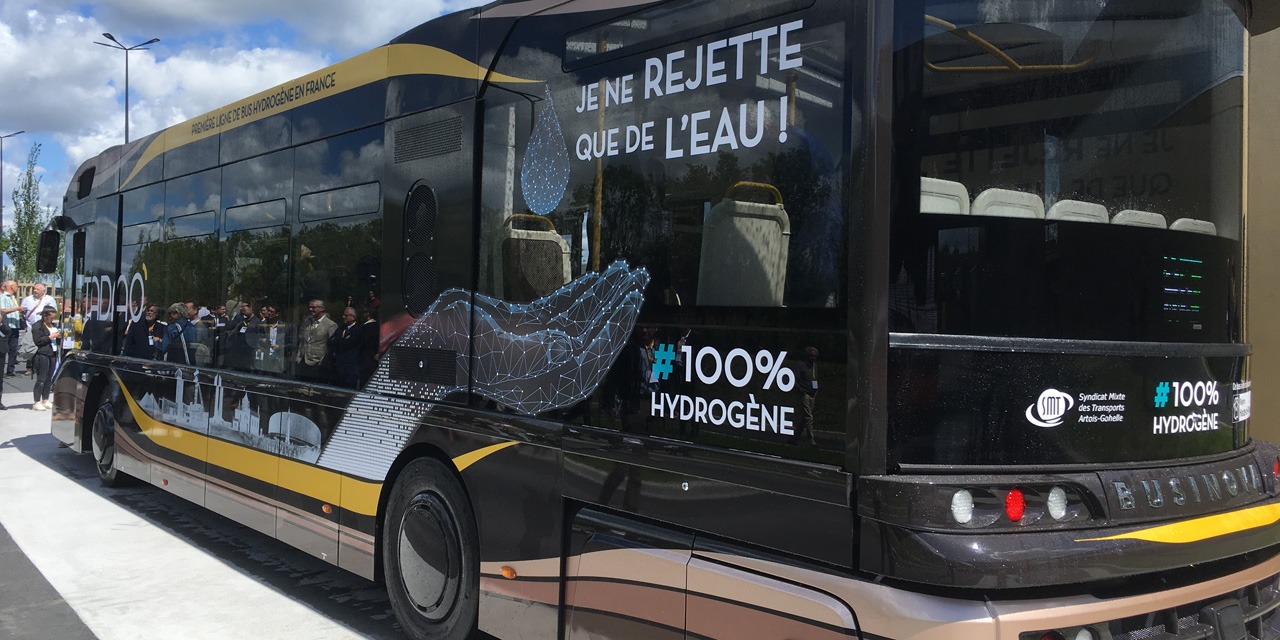The recovery plan presented Thursday by Jean Castex devotes seven billion euros over ten years to the hydrogen sector, presented as the fuel of tomorrow.
For the government, it is particularly a question of replacing the "gray" hydrogen, resulting from fossil fuels, by a "green" hydrogen, made from renewable energies.
DECRYPTION
Among the announcements of the recovery plan is the government's desire to invest heavily in hydrogen: seven billion euros by 2030, including two billion injected quickly to help build a French hydrogen industry. .
Once transformed, hydrogen is the only zero-emission fuel, but its production still emits a lot of CO2.
We talk about "gray" hydrogen, made from fossil fuels.
The State therefore wants to invest to produce "green" hydrogen, that is to say from the electrolysis of water, with electricity itself supplied by renewable energies.
>> Find the morning show of the day in replay and podcast here
In which sectors is hydrogen used?
Hydrogen is used in industry, chemistry, but especially in transport.
In Germany, trains manufactured by Alstom are already running on hydrogen.
The rail giant is currently working with SNCF to put hydrogen TERs into circulation from 2022 in several regions of France.
And if everyone is launching so massively, it is because hydrogen has a lot of advantages.
"The advantage of hydrogen, which is used to produce electricity in cars, is that the density of this molecule is excellent. It provides user comfort comparable to those of 'a thermal car ", points out to Europe 1." When it reacts to produce electricity, it emits no other form of substance than water. "
Lighter than an electric battery, the device could also be favored for rolling heavy weights.
LISTEN
- Our
Before Tomorrow
podcast
on
these cars of the future that will run on hydrogen
And can we also imagine hydrogen boats and planes?
Some boats already use hydrogen.
There are still few, but it is clearly a credible option to make maritime transport less polluting.
For aviation, on the other hand, this type of fuel will arrive in the medium term, not for 10 or 15 years.
However, the necessary technology already exists, it is liquid hydrogen.
However, the best specialists for liquefying hydrogen are French.
And this sector could generate jobs?
Yes, we are right there with the goal of relocating the industry.
Michel Delpon, a member of the majority who set up a study group on hydrogen in the National Assembly, is already anticipating the creation of a job incubator.
"The objective is to keep our know-how and our researchers. We will create jobs and a new economy," he assures Europe 1. "It's a real revolution, like the one we have known. with digital. "
To support this revolution, a whole ecosystem remains to be built, whether for storage, the number of charging stations or even the sectors to train for these jobs of tomorrow.
But with seven billion euros over ten years, the players in the sector say that a decisive turning point has just been taken.

